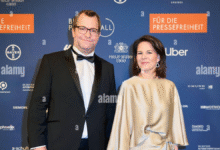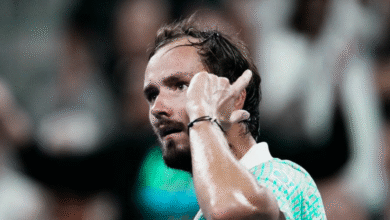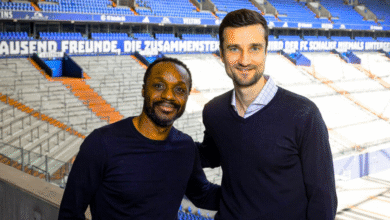Julian Reichelt: Navigating the Rise, Reign and Repercussions
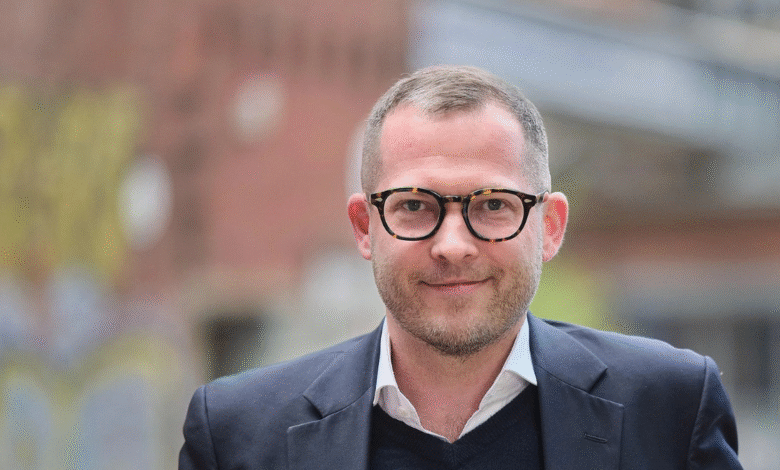
Quick Bio Table
| Feature | Details |
|---|---|
| Full Name | Julian Reichelt |
| Date of Birth | 15 June 1980 |
| Place of Birth | Hamburg, West Germany |
| Nationality | German |
| Primary Occupation | Journalist, former editor-in-chief |
| Key Roles | Chair of editors-in-chief at Bild, editor-in-chief digital (“Bild .de”) |
| Years Active | From around early 2000s to present |
| Notable Transition | Removal from his leadership roles following compliance investigation |
| Current Focus | Media-personality, digital and video-based commentary |
1. Early Life and Entry into Journalism
Julian Reichelt was born in Hamburg in mid-1980 and grew up in the district of Othmarschen. His family already had journalistic ties: his father, Hans-Heinrich Reichelt, worked as an editor for the Berlin edition of Bild, while his mother, Katrin Reichelt, wrote freelance for medical topics.
He attended Gymnasium Othmarschen and completed his Abitur around the year 2000. From there, his journalistic training began: he did a traineeship at the group behind Bild and underwent formal training at the Axel-Springer-Academy.
The combination of familial background and formal education provided him with both an insider view of media and a training ground. In his early reporting career he ventured into war zones — including Afghanistan, Iraq and Sudan — covering intense assignments that shaped his early identity as a journalist willing to report from the front.
That foundation mattered: seeing war-reporting, dramatic journalism and tabloid storytelling all as part of his formative years meant Julian Reichelt’s later editorial style would carry echoes of high-stakes reporting and condensation of big stories into tabloid formats.
2. Ascendance in Traditional Media
By the mid-2010s, Reichelt was climbing rapidly in the German media landscape. In 2014 he became editor-in-chief of Bild.de (the online arm of Bild). Then, in early 2017 he succeeded Kai Diekmann as chairman of the editors-in-chief at Bild, thereby assuming overall editorial responsibility for one of Germany’s largest tabloids.
His editorial direction marked a shift: while Bild had long been a dominant tabloid focusing on sensational news, celebrity gossip and populist framing, under Reichelt’s leadership the tone is often described as darker, more political, more engaged with cultural-wars style framing. As one observer put it: “The tone became darker and more divisive.”
In this phase, Julian Reichelt operated at high visibility: he had power not just within Bild but in the broader German media ecosystem. His decisions shaped what many in Germany read and how stories were framed. The combination of tabloid reach and digital expansion meant his influence was significant.
For someone studying media trajectories, Reichelt’s rise exemplifies how a journalist who starts on assignment shifts into editorial power, and how editorial tone can shift under leadership changes. His period at Bild represents a case study in modern tabloid journalism and digital transition.
3. Editorial Style and Impact on Media Landscape
One of the defining features of Julian Reichelt’s tenure at Bild is the way editorial style was recalibrated. Observers point out that story selection, headline framing and the engagement with polarising cultural issues became stronger under his leadership. For example: fear-based headlines, emphasis on immigration and law-and-order issues, and challenges to political consensus.
What does that mean in practice? It means the tabloid model under Reichelt did not just chase sensationalism for its own sake; rather, it picked themes that tapped into societal anxieties and cultural divides. This kind of editorial choice amplifies certain narratives: the “them versus us,” the outsider threat, the crisis mentality. It is exactly this kind of framing that critics point to when they accuse the paper under Reichelt of contributing to polarisation.
At the same time, his style secured attention — if not always compliments. Tabloid journalism thrives on visibility. Under Reichelt, Bild posted and maintained high levels of circulation (though print copies were declining, in line with global trends). He also pushed the digital arm of the business, recognising that online reach is pivotal. In short: he understood the business of modern media and how to position a tabloid in a digital world.
Still, editorial impact is not purely positive. The shift in framing raised questions about objectivity, about sensationalist leanings, about the role of tabloids in democratic societies. Reichelt’s era at Bild invites reflection on what tabloid journalism does, and whether such outlets carry a heightened responsibility when they mix high-stakes political content with tabloid form.
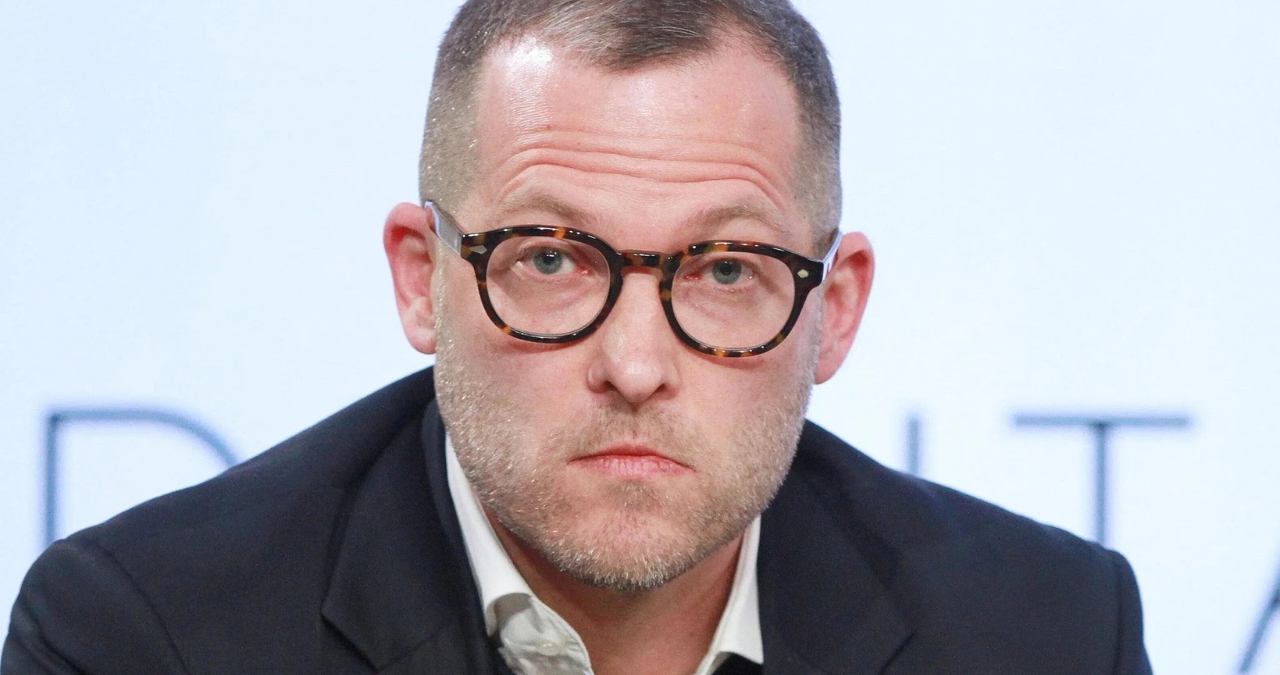
4. Controversies and the Fall from Traditional Platforms
No narrative about Julian Reichelt can ignore the controversies that led to his departure from leadership at Bild. In October 2021, Axel Springer SE announced that Reichelt was relieved of his duties with immediate effect, citing new findings about his conduct.
The nature of the findings: they relate to mixing of private and professional matters, undisclosed relationships with subordinate employees, and alleged abuse of power in that context. While the company emphasised that there were no proven allegations of sexual assault, the refusal to maintain clear boundaries and the misleading to the executive board were key factors in the decision.
The fall from that high editorial position was swift and dramatic. For someone used to being one of the most powerful newsroom figures in Europe, the sudden termination demanded public explanation and raised serious questions about media leadership, ethics and accountability. As one review put it: “The ‘most powerful newsroom editor in Europe’ lost his job this week,
This phase of his life also invites reflection: what is the cost of rapid rise when organisational checks and balances are weak? How does a media house manage power dynamics internally? Julian Reichelt’s case becomes more than a tabloid story — it becomes a cautionary tale in journalism leadership and ethics.
5. Transition to Digital Platforms and New Ventures
After his departure from the traditional newsroom hierarchy, Julian Reichelt did not disappear. Instead, he pivoted toward digital platforms and opinion-driven media. For example, from July 2022 he began the show “Achtung, Reichelt!” on YouTube, distributed via a network connected to the portal Nius.
This transition is notable for several reasons: first, it reflects how established journalists are shifting toward independent or semi-independent media models. Second, it shows how opinion journalism and personality-driven brands in the digital realm can provide an alternative to conventional newsroom structures. Third, it invites scrutiny: when someone moves from a major mainstream outlet to a more niche or partisan platform, questions about audience, influence, transparency and fact-checking come into sharper focus.
Under this new model, Reichelt effectively becomes both journalist and brand. He is less bound by the institutional constraints of a traditional newsroom. That might provide freedom, but also means the checks and balances may be weaker. For media watchers, the move is a litmus test: what happens when major-league editors shift into digital-opinion roles? What consequences does that have for public discourse?
It also shows adaptation: instead of fading out, he found a route to stay influential. Whether one agrees with his editorial stance or not, his ability to maintain presence in media demonstrates a savvy understanding of platform transitions.
6. Contributions, Criticism and Legacy in German Journalism
Julian Reichelt’s legacy is complex. On one hand, he contributed to modernising a major tabloid, recognising the importance of digital expansion, and bringing war-reporting experience into a tabloid context. On the other hand, his era is criticised for contributing to polarisation, for blurring the lines between news and commentary, for controversial journalism ethics.
Many media analysts point out that under his leadership Bild adopted a tone that resonated with populist currents, placed emphasis on immigration issues in a way critics saw as alarmist, and shifted overall editorial framing toward the dramatic. At the same time, supporters argue that tabloids like Bild under Reichelt provided a counter-narrative to the liberal elite media, connecting with broad readerships and tackling issues otherwise under-covered.
In terms of legacy, Reichelt’s career offers multiple lessons: the challenge of leadership in large newsroom organisations; the pressures of digital transformation; the risks of mixing personal and professional boundaries; and the power of personality in media branding. Whether his structural impact will be judged more positive or negative remains a matter of perspective, but his name is unlikely to vanish from discussions of modern German journalism.
From the vantage point of someone studying journalism trends, Reichelt embodies both the opportunities and pitfalls of the 21st-century media ecosystem: speed, digital reach, personality, commerce, ethical pressure, institutional crisis. His career arc reflects larger forces at play in media globally.
7. What Driving Factors Shaped His Editorial Approach?
When trying to understand what drove Julian Reichelt’s editorial decisions, several factors stand out. First: his early experience as a war correspondent. Engaging with conflict zones likely sharpened his orientation toward urgency, drama and event-driven reporting. That carries into tabloid territory: breaking news, strong visuals, human drama.
Second: the institutional setting of Bild. As Germany’s highest-circulation newspaper (at various points) the editorial culture had to balance mass audience appeal with commercial viability. Reichelt stepped into an organisation that was already used to high-volume, headline-driven journalism. His challenge was to modernise it digitally and maintain relevance.
Third: the broader political-social context in Germany. Issues like immigration, integration, social cohesion, and cultural identity have been intensely debated in Germany in the last decade. Reichelt’s editorial choices often reflected that zeitgeist — emphasising, for example, internal insecurity, cultural threat narratives, populist framing. This can be viewed as both opportunistic and responsive to what parts of the public seemed to feel.
Fourth: digital competition. With declining print readership and rising online competition, tabloids had to adapt. Emphasising strong headlines, shareable content, and interactive digital formats became necessary. Reichelt’s tenure emphasised the online arm of Bild and making the brand “fit for the future” according to his employer.
Thus, his editorial approach is the result of personal history, institutional culture, social environment and digital business pressures. Understanding these drivers helps one make sense of why Bild changed under his leadership and why his style elicited both support and criticism.
8. Ethical Lessons and Leadership in Media Spaces
The controversies surrounding Julian Reichelt’s leadership highlight several ethical lessons for media organisations. The first major lesson is the importance of clear boundaries between professional duties and personal relationships. His removal by Axel Springer referenced “mixing of private and professional matters” and misleading the board about it. axelspringer.com+1
Secondly, leadership in journalism is not just about editorial vision but about organisational culture. Power dynamics, especially in large newsrooms, must be managed, and unchecked authority can lead to systemic problems. The “Reichelt system” was criticised for dependency relationships and potential favouritism. Justapedia
Thirdly, accountability matters. Even someone who achieved high status in the media industry is subject to compliance, transparency and internal governance. Media houses must enforce standards for behaviour, especially when the public trusts them for information. Reichelt’s case underscores that reputation and institutional integrity are fragile.
Fourth, media transformation comes with risk. As news organisations shift to digital models, leadership must navigate not only content strategy but also ethics in new environments (e.g., social media, livestreaming, influencer-style journalism). Reichelt’s later digital pivot demonstrates how the boundaries between journalism, advocacy and opinion can blur.
In sum, media organisations studying leadership, ethics and culture will find in Julian Reichelt’s story a vivid case of both success and failure, with clear signals about what to emulate and what to avoid.
9. Audience and Influence: Who Follows Him, and Why It Matters
Understanding the audience and influence of Julian Reichelt is key to comprehending his impact. At Bild, the readership was mass, broad and tabloid-oriented — meaning his editorial decisions reached millions across Germany. When he moved to digital platforms, the audience changed: more specialised, more opinion-oriented, yet still significant.
Why does this matter? Because media influence is not only about readership numbers, but about shaping discourse. By capturing attention through headlines, columns, talk-shows or YouTube segments, Reichelt has had a platform to shape public conversation. His style appeals to audiences attracted to direct, sometimes confrontational journalism rather than nuanced academic formats.
This kind of influence has potential ramifications on the public sphere: how issues are framed, which voices are amplified, how cultural debates evolve. The fact that someone with a tabloid background remains influential in opinion media raises questions about media diversity, echo-chambers, and how audiences receive news and commentary.
Additionally, his transition shows that the barrier between traditional mass-market journalism and personality-led digital commentary is weakening. For media scholars, this signals a shift: journalists no longer only sit behind institutional brands — they can become their own brand, with direct access to audiences. Julian Reichelt’s embrace of that model illustrates this trajectory.
10. The Bigger Picture: What His Career Signifies for Journalism and Democracy
Examining Julian Reichelt’s career offers broader insights into journalism’s role in contemporary democracies. His rise and fall reflect pressures media houses face: commercial imperatives, digital transformation, populist politics, ethical boundaries, leadership accountability.
From one perspective, his era at Bild represents the triumph of tabloid journalism adapted for the digital age — fast, attention-grabbing, loud. From another perspective, it raises concerns: sensationalism, polarisation, erosion of editorial neutrality, concentration of power in the hands of strong editors.
Democratically, the health of media systems depends not only on high-quality journalism but also on diversity of voices, transparency, and ethical operations. Reichelt’s story exemplifies how a major media figure may wield influence but also how unchecked power can undermine institutional credibility.
As media transitions continue globally — print to digital, institutional to personality-led, local to global — the lessons from his career become instructive. Media organisations and society alike need to consider: how to maintain public trust, how to guard against abuse of power, how to ensure journalism serves the public good rather than just market demand.
In short: Julian Reichelt’s career is more than a biography — it is a mirror reflecting the broader shifts, opportunities and risks of modern journalism.
11. FAQs About Julian Reichelt
Q: What is Julian Reichelt best known for?
A: He is best known as the editor-in-chief of the German tabloid Bild (and the digital platform Bild.de) during a crucial period, and later as a digital commentator and media personality. His leadership period at Bild is the most high-profile part of his career.
Q: Why did Axel Springer remove Julian Reichelt from his position?
A: The removal followed an internal compliance investigation which found that Reichelt had blurred boundaries between private and professional life, misled the executive board, and in the company’s view his continued leadership was no longer tenable.
Q: What did he do after leaving the position at Bild?
A: He launched digital commentary work including a YouTube show “Achtung, Reichelt!” and became involved with the platform Nius, thereby shifting his focus to independent and digital media.
Q: Has Julian Reichelt won journalistic awards?
A: Yes, early in his career he won the Axel-Springer-Prize for young journalists in recognition of his report from Afghanistan titled “You can kill us, but never defeat us.”
Q: What criticisms does Julian Reichelt face?
A: Criticisms include that under his leadership Bild adopted a more divisive tone, that his editorial style favoured sensationalism and populist framing, and that the workplace culture under his leadership enabled abuses of power and blurred boundaries between personal relationships and professional advancement.
12. Final Thoughts: Why His Story Matters
In the evolving media world, Julian Reichelt’s story offers rich fodder for reflection. For journalists, it reminds that editorial power is not only about content but about culture and ethics. For media executives, it demonstrates that leadership style and organisational behaviour matter as much as strategic vision. For readers and citizens, it signals that media brands, personalities and platforms deserve scrutiny — because the way news is produced affects how we understand our world, our politics and our societies.
Reichelt’s journey from war correspondent to tabloid powerhouse to digital personality shows a path that is increasingly common: journalists who ascend fast, harness the tools of digital reach, become brands in their own right, and then face the complex interplay of ethics, influence and accountability.
Whether one views him favorably or critically, learning from his career means asking deeper questions about what modern journalism should stand for, how it should operate, and how it should respond to power. In a time when media trust is fragile, when platforms are splitting, and when editorial norms are under pressure, the story of Julian Reichelt is highly relevant.

